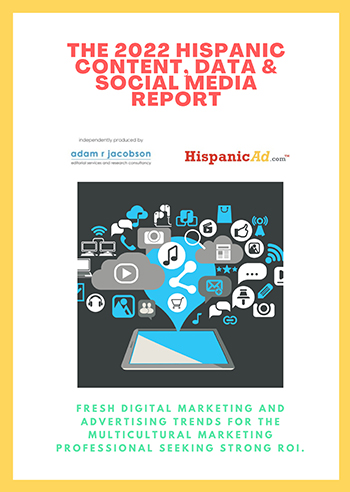Data
The Art of Asking the Right Question: The Skill of Tomorrow

In an age where information is abundant and artificial intelligence is at our fingertips, the greatest skill isn’t simply knowing where to look—it’s knowing what to ask.
Beyond the Numbers: Reclaiming Intuition in Brand Strategy

For decades, we've all worshipped data as the ultimate decision-making tool. Standardized testing, ranking/league tables, business school and so much more has taught that numbers provide certainty — that patterns, probabilities and models will lead us forward in the best way possible. And while analysis is critical, more and more I find myself wondering if we've let go of something equally valuable: intuition.
Eighty percent of brands have concerns about agency use of GenAI

Nearly two-thirds of brand owners (63%) are already using generative AI in their marketing strategies, according to new research from the World Federation of Advertisers (WFA) but many have serious concerns about the technology.
AI Data Bias, The 2024 Challenge: Solutions for Multicultural Integrity

Generative AI (Gen AI) applied to marketing has tremendous value and we leverage it across the board, however its inherent biases and limitations in Multicultural/Ethnic accuracy and representation requires guardrails, human contextual and deductive skills, and human involvement throughout the process. By Liz Castells-Heard, CEO & Chief Strategy Officer, INFUSION by Castells
The Pitfalls to Avoid When Planning Your Data Story

A generic context lacking in relevant details will not resonate with the audience, leading to decreased engagement with the data story from the outset. By failing to connect with the wider context, the data story will not result in the emotional response required to motivate action. A data story that relies on generic context, without consideration of the nuances for the particular brand, product, service, customer or business challenge, will lack depth. This can leave the audience questioning the relevance to their unique situation. To create impactful data stories, marketers and communication professionals should focus on crafting narratives that are relevant, authentic and tailored to the specific needs and interests of their audience.
Diversity In Data: Can Multicultural Insights Transform Programmatic?

In the ever-evolving world of programmatic advertising, leveraging diverse data sources to expand audience reach and optimize campaign effectiveness is paramount. As programmatic media buyers, you're likely familiar with DSPs such as The Trade Desk, Xandr, and Google DV360. However, the real game-changer lies in tapping into multicultural insights embedded within these platforms' vast amounts of data.
Why Fast-Moving Consumer Goods brands need dedicated promotional effectiveness analytics

In this first edition of the Wheelhouse blog for 2024 from Ebiquity’s Marketing Effectiveness team, Principal Consultant Steffen Kapffenstein makes the case for consumer goods investing in dedicated analytics to optimise the effectiveness of their promotional spend. In today’s tough economic climate, knowing what works best in terms of promotions – and why – have never mattered more. Yet almost half of all trade investment is loss making. How can you make sure you’re in the right half?
Five Leading Media Advocacy Groups to Make Diverse Content Creators and Talent More Discoverable, Accessible

Gracenote, the content metadata business unit of Nielsen, is joining forces with leading advocates for equitable representation in media on a new Studio System feature, Diversity Spotlight. The enhancement leverages insights from IllumiNative, Gold House, RespectAbility, National Hispanic Media Coalition (NHMC) and Coalition of Asian Pacifics in Entertainment (CAPE) to highlight people and projects that meet a range of diversity-specific criteria and open new casting, funding and collaboration opportunities.
Retail Principles for Artificial Intelligence [WHIEPAPER]

The National Retail Federation released its Principles for the Use of Artificial Intelligence in the Retail Sector to support the industry’s artificial intelligence (AI) governance and strategic planning. Developed through its Center for Digital Risk & Innovation, the principles encourage appropriate and effective governance of AI, promote consumer trust, and facilitate ongoing innovation and beneficial use of AI technologies.
How Marketers are Utilizing Artificial Intelligence and Accounting for Data Bias

The business landscape is evolving faster than ever through the use and implementation of artificial intelligence.
ARE YOUR MARKETING STRATEGIES READY FOR THE MULTICULTURAL MAJORITY?

For the first time, Americans 25 and under are a multicultural majority, with the 35-and-under segment estimated to reach that milestone by the end of this year. In addition, the Gen Z multicultural majority generation has reached adulthood, joining Millennials and together forming a multicultural super-segment. These two transformative generations are wielding enormous power and influence on today’s American mainstream. Just how much? The Hispanic Marketing Council (HMC) will have those answers and more with its latest study, “IT’S TIME: The Growing Power of the Multicultural Majority.” On October 4, HMC will host a free event in New York City to reveal the top insights of the study and host a Q&A session—the event also will be live streamed. For more information, and to register for the in-person event or the simulcast.
‘Always-on’ Analytics: The Pros and Cons of Automation in Marketing Mix Modelling

Welcome to the Wheelhouse, a series of blogs from Ebiquity’s Marketing Effectiveness team. In this fourth edition of The Wheelhouse, Principal Consultant George Wood considers the benefits and drawbacks of running automated, ‘always-on’ analytics for marketing effectiveness in marketing mix modelling.
The Rise of Propensity Modeling and Value Based Marketing in 2023

As the cookie continues to crumble, marketers have turned their attention to first-party data, grabbing up as much as possible from analytics tools, site logins, CRM systems, and more. First-party data can be sophisticated with useful information about potential or current customers, even helping to gauge the value of these customers.
Almost Half of Marketers Do Not Trust the Reliability of Their Data Due to Fragmented Tools and Poor Integration

Zeta Global announced a Forrester Consulting Opportunity Snapshot, “Elevate Your Integration Strategy for Maximum Business Impact.” This study was commissioned by Zeta Global to examine the current state of marketing technology and the biggest challenges that brands face in their quest to improve customer experiences and accelerate growth.
Data Privacy and Personalization: Is Your Marketing Future Proof?

Welcome to the new era of data privacy, regulation and a cookie-less future. As we approach the many changes impacting digital marketing, marketers can embrace new technology solutions and create better, more personalized experiences for their customers.
2022 Hispanic Content, Data & Social Report – Available for download FREE

HispanicAd offers its annual report on key Content usage strategies, along with the importance of using Data strategies to engage the US Hispanic Consumer. Social Marketing strategies are reviewed for their performance value.
Guide to diversity and representation in media planning and buying [REPORT]

Developed by the WFA Diversity Task Force with the support of GARM – the Global Alliance for Responsible Media, Diversity & Representation: Focuson Media Planning and Buying highlights four key areas where bias can occur and proposes questions and approaches that can be used to ensure progress. It also pulls together key resources that can be used to tackle any gaps or areas of concern.
Data ethics is a priority for nine out of 10 CMOs but half need help making it a reality

New WFA research has found that while CMOs are keen to address consumer and regulatory concerns around data-driven marketing, the complexity of the data and digital ecosystem is making it hard for them to identify the right practical measures to take.
49% of Marketers say they are looking to contextual advertising to replace cookies

GumGum published the results of a survey that found 49% of brand marketers are looking to contextual advertising to replace cookies in their marketing efforts.
In-App Advertising To Account For 56% Of Digital Ad Spend In 2026

In the social media age, mobile apps have become an effective way to reach out to potential customers. The popularity of in-app advertising is likely to keep growing in the coming years


























